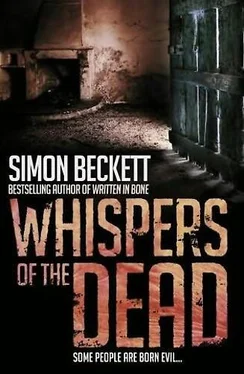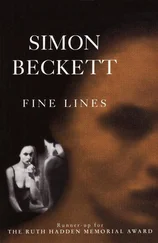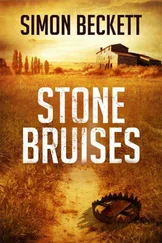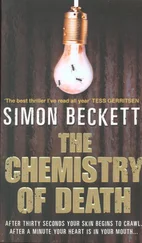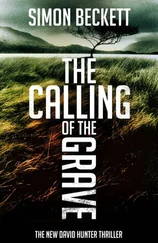Still, as I left the autopsy suite, I knew I wasn’t going to rest until I found out.
I was too busy for the rest of that day to think about trying the number again. The remains from Steeple Hill still had to be cleaned, but that was a relatively straightforward job. Scavengers and insects had already stripped any traces of soft tissue from them, so it was largely a matter of degreasing them in a detergent solution.
But we’d no sooner got them in the vats when the medical records of Noah Harper and Willis Dexter were delivered to the morgue. Knowing Gardner would want their IDs verified as soon as possible, I left Summer to finish cleaning and drying the bones while I turned my attention to that task.
Of the two, Dexter’s identity proved the easier to confirm. The X-rays we’d taken that morning of the skull recovered from the woods showed identical fractures to those in X-rays taken at the mechanic’s post mortem. It was what we’d expected, but now it was official: Willis Dexter wasn’t the killer. He’d died in a car crash six months earlier.
That still left the question of whose body had been left in his grave.
There seemed little doubt that it was Noah Harper’s, but we needed more than superficial similarities of age and race to be sure. Unfortunately, there were no post mortem or dental records to provide convenient identification. And while the eroded hip and ankle joints I’d found on the body from the casket would explain Harper’s characteristic limp, there were no X-rays of them in his medical records. Medical insurance and dental care were obviously luxuries the petty thief couldn’t afford.
In the end it was the childhood breaks in Harper’s humerus and femur that identified him. They at least had been X-rayed, and although the grown man’s skeleton was aged and worn, the long-healed fault lines in his bones remained constant.
By the time I’d satisfied myself as to the identities of both sets of remains, it was growing late. Summer had left a couple of hours earlier, and Paul had called to say that his meeting had overrun, so he wouldn’t be able to make it back to the morgue after all. He’d got his priorities right, going home to his pregnant wife rather than working all hours. Smart man.
I would have liked to carry on working, but it had been a tiring day, emotionally as well as physically. Not only that, but I hadn’t eaten since breakfast. Much as I might want to make up for lost time, starving myself was no way to go about it.
As I changed I called Mary to see how Tom was. But her phone was switched off, which I guessed meant she was still with him. When I called the ICU itself, a polite nurse told me he was stable, which I knew meant there was no change. I was about to put away my phone when I remembered the number I’d taken earlier from Tom’s.
I’d forgotten all about it till then. I tried it again as I left the morgue, nodding goodnight to the elderly black man who now sat at reception.
The number was engaged.
Still, at least it showed that someone was home. I pushed open the heavy glass doors and stepped outside. Dusk was settling on the nearly empty hospital grounds, giving the evening a dying golden glow as I called the number once more. This time it rang. I slowed as I waited for someone to answer. Come on, pick up.
No one did. Frustrated, I ended the call. But as I lowered my mobile I heard what sounded like a distant after-echo.
A phone was ringing nearby.
It stopped before I could tell where it was coming from. I waited, but the only sounds were birdsong and the distant wash of traffic. Knowing I was probably over-reacting to what was in all likelihood just a coincidence, I called the number again.
A lonely ringing broke the evening’s silence.
Perhaps thirty yards away, partially screened by a border of overgrown shrubs, was a public payphone. No one was using it. Still not quite believing this wasn’t some fluke, I ended the call. The ringing stopped.
I redialled as I walked over. The payphone started ringing again. It grew louder as I approached, half a beat behind the tinnier version coming from my mobile. This time I waited until I was only a few feet away before I disconnected.
Silence fell.
The payphone was in a half-shell booth, open to the elements. Branches from the shrubs had grown round it, so that it seemed to be sinking into the greenery. I knew now why the line had either been busy or gone unanswered when I’d called. Hospitals were one of the few places where payphones were still in demand, visitors calling relatives or for taxis. Yet no one would bother to pick up if one rang.
I stepped into the booth without touching the phone. There was no doubt that someone had called Tom from here the night before, but I was at a loss as to why. Not until I looked back down the path I’d just walked along. Through the straggly branches of the shrubs I had a perfect view of the morgue entrance.
And of anyone who came out.
‘SO YOU THINKthe killer called Dr Lieberman last night.’
Jacobsen’s voice was completely inflectionless, making it impossible to know what she thought of the idea.
‘I think it’s possible, yes,’ I said.
We were in the restaurant of my hotel, the half-eaten remains of my dinner congealing on the plate in front of me. I’d called Gardner from the hospital, finding his number in the address book of Tom’s mobile. I’d anticipated his scepticism and readied my arguments for it. What I hadn’t anticipated was that he wouldn’t answer, and that I’d find myself having to explain to his voicemail service.
Rather than go into details, I’d said only that I thought the killer might have contacted Tom, and asked Gardner to call me. I’d assumed the TBI agent would want to see the payphone for himself, perhaps have it checked for fingerprints, although after it had been in use for another twenty-four hours I doubted there’d be much to find.
But there was no point waiting there until Gardner got my message and decided to call me. Feeling vaguely stupid, I’d gone to my car and driven back to my hotel.
It was almost an hour later before I heard anything. I’d just ordered dinner when my phone rang, but it was Jacobsen rather than Gardner on the other end. She asked for the number I’d taken from Tom’s phone and told me to wait. The phone line went quiet, and I guessed she was passing the information on to Gardner. When she came back on she told me that she’d be with me in half an hour.
It was less than that when I looked up and saw her entering the restaurant. I pushed my plate away, my appetite suddenly gone. Jacobsen wore a black suit this time, the tailored skirt swishing with each stride as she made her way to my table. She could have been an ambitious young businesswoman except for the gun I glimpsed under her jacket as she sat down. There was no explanation of why Gardner hadn’t returned my call or come himself, but I could guess.
Declining anything to eat or drink, she listened without comment as I explained in more detail about the call Tom had received.
Now I was starting to wish I hadn’t bothered.
‘Do you have Dr Lieberman’s cell phone with you?’ she asked.
I took it from my jacket and passed it over. I’d put it into my pocket at the last minute as I’d left my room. Just in case.
‘Any news about Irving?’ I asked, as Jacobsen examined the record of Tom’s incoming calls.
‘Not yet.’ It was obvious that was all I was going to get. She copied the number into her own phone, then put it away without comment. ‘What made you check Dr Lieberman’s phone in the first place?’
‘I was curious who’d called him. I wondered if it was connected with the heart attack.’
Читать дальше
